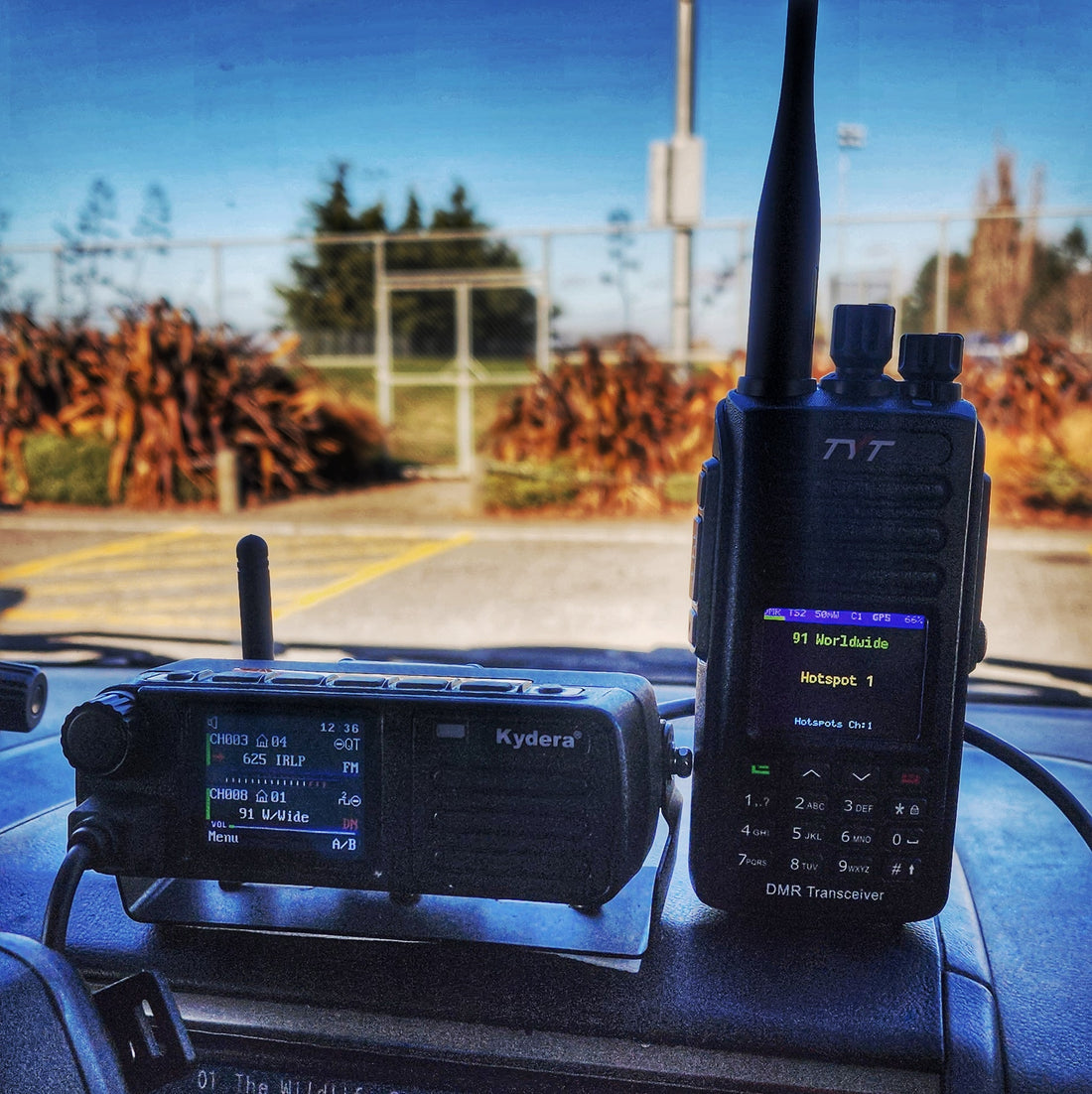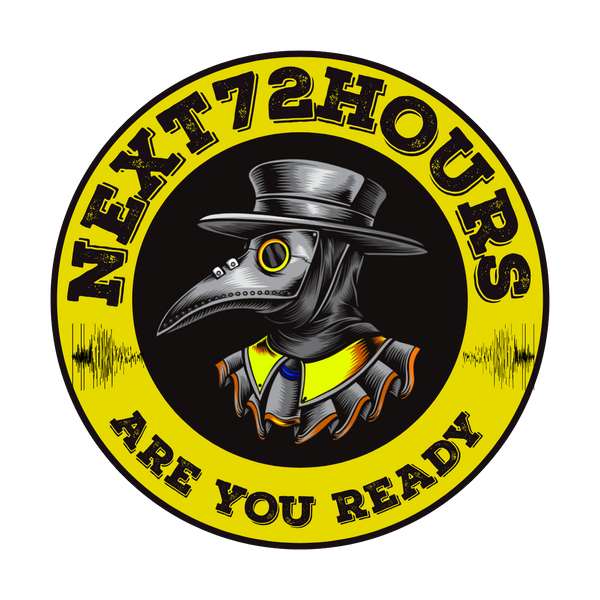
Amateur Radio Emergency Communications - The Vital Role of Amateur Radio in Emergencies
Share
Amateur Radio Emergency Communications
During a crisis, such as a Natural Disaster or Major Emergency, every second is crucial. Lives hang in the balance, and effective communication can mean the difference between life and death. History has shown us time and time again, when disaster strikes and local utilities' such as the National Power Grid or Mobile Phones services go down, one group emerges time and time again: amateur radio emergency communications, otherwise known as HAMS.
Around the world, from major cities to smaller town and outposts, amateur radio operators spend their time training to be ready to provide vital communication links when other traditional systems fall over and fail, to stand ready to provide vital communication links when traditional channels fail.
While having and emergency kit, survival kit, grab bag or workplace emergency kit is essential to protect your own safety and provide personal communications, by providing you with an emergency am / fm radio, having others on hand who can help emergency services provide those communications and gather information is also very important.
Amateur Radio Emergency Communications In New Zealand - AREC
New Zealand is known around the world for its stunning beauty and wild landscapes. Much of the reason for this is its location, situation smack bang in the middle of the Pacific Ring of Fire. As a result of its being located on this pacific ring of fire, the country was formed into the wild landscape that it is, with Mountain Ranges that stretch from the far south to the top of the South Island and up through the North Island. At the same time as being responsible for making New Zealand the natural beauty that it is, it is also means that New Zealand is at constant threat of Natural Disasters, such as Earthquakes, Volcanic Eruptions, Tsunamis and much more. In times of such crisis's, the Amateur Radio Emergency Communications (AREC) group in New Zealand are called into Action and provide their life saving services. AREC, like many emergency services in New Zealand is a volunteer agency and made up of people from all backgrounds.
Amateur radio operators in New Zealand come from a diverse and dedicated community background. They undergo regular training to prepare for emergencies, and work alongside other partner agencies to ensure that they can react quickly in a disaster and help provide a reliable communication link when other traditional models fall over.

Why do we need Amateur Radio Emergency Communications when we have mobile phones and the internet?
Natural disasters, such as earthquakes, can quickly overload or even destroy conventional communication networks such as the internet or mobile phone systems. In times such as these Amateur Radio operators can step in and fill this gap. While there are other Amateur Radio modes such as DMR, traditional Amateur Radio such as VHF/UHF and HF will work without these other services, and HF in particular will work over very long distances using low power. HF Radio sets can be used to communicate around the globe, depending on the atmospheric conditions.
During the Canterbury Earthquakes of 2010 and 2011, amateur radio operators were called on to provide vital communications, and assist emergency services when their services and infrastructure became over loaded. Many Amateur Radio Operators also have systems setup where they can provided their own power during an event and there is a pretty amazing HF Net setup specifically to provide support during a Natural Disaster such as the AF8 Earthquake, which is the triggering of the Alpine Faultline in the South Island of New Zealand. This is expected to happen in our lifetime, at the moment it is over due, and the team at the HF Radio Charitable Trust are working on building a team of volunteer professionals to provide essential services in the event of a major disaster. Check out their website to see what they are doing.

But amateur radio's role extends beyond immediate disaster response. In the aftermath of a crisis, when communities are grappling with the aftermath and rebuilding their lives, amateur radio operators continue to provide essential support. They facilitate communication between relief organizations, government agencies, and affected communities, helping to coordinate aid distribution and recovery efforts.
The strength of amateur radio emergency communications lies not only in its technical capabilities but also the human side of the equation. Many Amateur Radio operators are often deeply connected with their communities, they often live in them, and many of them volunteer with other organisations as well. This gives them a solid knowledge of their community, how the people act and think, what they will need during a disaster and also gives them a great knowledge of the area, which means they will be able to better react to any emergency that arises.
How can I get involved in Amateur Radio in New Zealand and become a part of one of these teams?
Your first point of call, if wanting to get involved in any of these exciting opportunities then the first thing you should do is make contact with them. You can click on the links above and be directed to their websites, they will be more than happy to speak with you and run you through the first steps.
The most important thing to know, is that you will need to become a licenced Amateur Radio Operator to transmit on one of these radios. If it is been a while since you studied or you have minimal technical knowledge then you can take a part in a local ham cram at your local amateur radio club. If you click on the following link you can visit the New Zealand Association of Radio Transmitters (NZART) and find your local club and sign up for a HAMCRAM. Ham Cram is a two day course that prepares you for taking your Amateur Radio Licence Exam, and the pass mark is 40/60. I recently took mine back in 2023, the group of people studying were from varied backgrounds and varied levels of knowledge, and with the help of the tutors and easy to follow course, all members passed and became certified.

Moving Forward - Amateur Radio Emergency Communications
Every Disaster is a chance to learn from the past. Not everything always goes to plan, but we can use the lessons from the past to inform changes and improve the amateur radio emergency communications procedures to provide a better service moving forward. Regular training is important, AREC teams do regular courses with each other as well as partner agencies an d participate in regular simulations and exercises, this ensures that they are ready to spring into action when needed with a moments notice.
In a world that has become increasingly more reliant on Digital Technologies such as mobile phones, the internet and Facebook, it is heartening to know that groups like this exist, and shows how important Amateur Radio remains in this day and age with regards to emergency preparedness and emergency response.

Community Emergency Radio Networks - CERN.NZ
A new and exciting space that is starting to open up in our local area, with the aim or spreading all through the country, is the idea of Community Emergency Radio Networks. If you click on the image above, of this link here, then you will be delivered to the CERN.NZ website, where you can learn more about it as it comes to fruition.
Spearheaded by Phil Hayward, based in the Canterbury town of Springfield, New Zealand, the website is in its infancy stages, but already the work he is doing shows incredible potential. Statistically communities who have the ability to communicate, during a disaster event, have the best survivability statistics. Good communications is vital, and in a country like New Zealand, where communities may get cut off for weeks at a time during a major even, this communication ability will be vital.
We here at Next72Hours are super excited to see what comes from this initiative, and ultimately hope to play a part in it as well, We will keep the updates coming as the page grows, and hopefully be able to bring you some great photos, videos and information as it comes out also.

